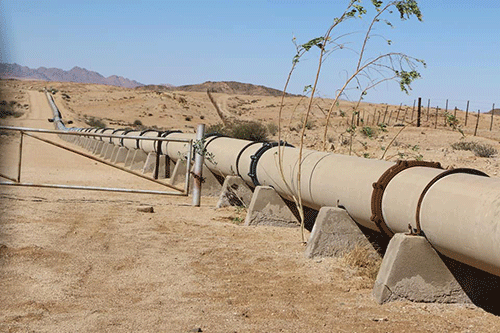Water remains an important input for the mining industry hence government’s commitment through NamWater to ensure sufficient and timely delivery of water for this important sectoral contributor to Namibia’s gross domestic product.
The water utility provides 33% of the water supplied to mines in Namibia. According to their 2021/21 integrated annual report, this task is often a complex one, as the corporation needs to balance the demand of these mines with the sustainability of available resources.
“NamWater must consider principles established in the Water Supply and Sanitation Policy, which ranks human consumption higher than industrial processes,” reads the report. Mines are also on the list of big NamWater customers, along with City of Windhoek and other local authorities.
Rössing Uranium mine is supplied with desalinated water sourced from the Orano desalination plant with an annual demand of approximately 2.9 million cubic metres.
The mine regards the cost of water currently exacted by Orano to be unacceptably high, but pays regularly and on time.
The report added for Langer Heinrich Uranium mine, which is on care-and maintenance, water demand has dropped to less than 5000 cubic metres per annum.
Husab Uranium mine is also supplied with desalinated water sourced from the Orano desalination plant. This mine is in full operation and its demand is approximately 7.3 million cubic metres.
“This volume makes the mine the second largest, single customer of NamWater after the City of Windhoek. The mine regards the cost of water currently exacted by Orano to be unacceptably high, but pays regularly and on time,” stated NamWater.
The corporation liaises continually with mines in order to help them streamline their water requirements.
NamWater remains the supplier of choice for other industrial customers as well, which include processing plants that require large quantities of water on a continual basis. The supply of water to mines and industries enables government in attaining national development goals on industrialisation.
Last year, water minister Calle Schlettwein confirmed the feasibility study for the construction of a new desalination plant has been completed and shows that an additional plant is viable and is indeed needed to alleviate industrial production constraints.


